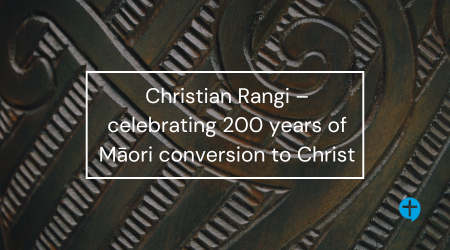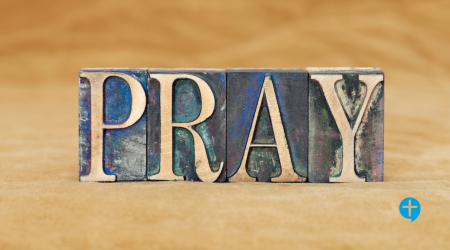
by Guest Author | 22 Aug , 2025 | About Christianity, Articles, Christianity and Social & Moral Issues
Last week the champion of New Zealand’s End of Life Choice Act, David Seymour, publicly shared an email from someone who praised him for our country’s new euthanasia statistics. The emailer correctly believed that Seymour would appreciate hearing that the death tally, as of 30 June, was 1,307. Predictable comments followed, applauding euthanasia as a human right, as compassionate, and as ending suffering. Then came this one: “I’ve often wondered whether it should be offered to whole-life prisoners too. Would need to be carefully monitored, but might free up prison space.” Despite unmasking euthanasia’s utilitarian core, positive reactions to that comment outnumbered others two to one.
Currently, Kiwis who want medical help committing suicide need two doctors to affirm that they are competent to consent, declining from a condition expected to kill them within 6 months, free from coercion, and experiencing unbearable suffering. The bar is lower than it sounds. “Unbearable suffering,” for one person who underwent euthanasia, was simply losing the ability to enjoy nature. Another did not speak English, had no interpreter, and likely had dementia; consent, apparently, was just assumed. The shortest time between application to death has been two days — hardly time for the physician to “do their best,” as vaguely expressed in the legislation’s toothless words, to detect coercion.
Oregon, the first US state to legalise assisted suicide in 1994, has not legalised voluntary euthanasia. Eligible patients are prescribed a lethal dose, but physicians cannot kill them. New Zealand has legalised both practices.
Belgium, despite loose eligibility criteria that doesn’t require assent at time of death, still requires the referral of patients to a palliative care team. Unlike euthanasia, palliative care is not fully funded in New Zealand; 22% of those euthanised haven’t received the benefits of palliative care.
Euthanasia legislation overseas typically requires a cool-down period, recognising suicidal patients often change their minds. New Zealand has no cool-down requirement.
Those driving our euthanasia legalisation admit that some safeguards were included only to get the euthanasia bill over the line, and they hope to remove some. Seymour used his post last week to plug a bill that would expand access to those without a 6-month prognosis, making many with degenerative conditions eligible. He takes his lead from Canada, where patients with non-terminal conditions can already end their lives, and where (from 2027) mental illness will also qualify.
Our Ministry of Health also resists increasing safeguards or improving oversight. Two of the original three members of the End of Life Review Committee, which reviews death reports, found missing, conflicting, and disturbing information. The Ministry brushed off their concerns; if information is missing, it said, “assume nothing is wrong.”
Predictably, the Ministry’s 2024 review of the End of Life Choice Act said it is “largely operating well.” Its recommendations for “improvements” involve limiting physicians’ conscientious objection rights, allowing doctors to proactively offer euthanasia to patients, and requiring all care homes and hospices to allow euthanasia onsite – or lose their registration.
Far from endorsing free choice, the Ministry of Health rejects outright some viewpoints. It reported that “some communities’ tikanga (customary values) are not aligned with or supportive of assisted dying,” and that “some held the view that the wairua (spirit) belongs to God, and the body should be allowed to perish naturally.” Regarding Māori whanau who consider euthanasia to be the same as suicide, it writes “that this points to a lack of awareness and acceptability of assisted dying within Māori communities and an urgent need for assisted dying to become familiar, understood, and accepted.”
A Private Member’s Bill is in the tin, which, if selected and passed, would require our health system to have a clear plan for palliative care and better funding for it. That bill will make us ask: Are we committed to helping people experience the best death, or are we satisfied with what’s most expedient? If it’s the former, let’s advocate for palliative care to be universally available so that every Kiwi has that choice.
Read Maxim Institute’s Discussion Paper: “Interrogating Choice: Euthanasia and the illusion of autonomy”
– Maryanne Spurdle

by Dr Malcolm Falloon | 8 Aug , 2025 | About Christianity, Articles, Christianity in New Zealand
This year marks 200 hundred years since the baptism of Christian Rangi, the first Māori baptised by the missionaries as a Christian convert. Henry Williams, who conducted the baptism on 14 September 1825, described Rangi as a “brand plucked from the burning” (Zech. 3:2), pointing to the providential nature of Rangi’s conversion.
Rangi was baptised on his death-bed and died the next day from the ravages of tuberculosis. But, despite his death, the missionaries rejoiced in way that Rangi had come to faith over the previous eighteen months, culminating in his choice of baptismal name: Karaitiana (Christian). For Rangi, taking the name of Christ sealed his identitification with Jesus as Lord and Saviour.
For many Māori at that time, the idea that a Māori could be converted from the traditions of his ancestors was considered an impossibility: Māori had their own atua and had no need for “the white man’s God”. Many Europeans too considered the whole missionary enterprise a complete waste of time and money.
Yet despite those prevailing views, Rangi received the missionaries each Sabbath at his family settlement at Waitangi and listened to their message of a heavenly country where there was no more sickness or pain. Early on, Rangi had proposed an experiment: he would plant some kumara with the “tapu” and some without, declaring that the one that grew best would indicate the true God. It wasn’t long before Rangi had set aside entirely all the chiefly requirements of tapu. It was a move that in Māori eyes dangerously exposed Rangi to spiritual attack.
Rangi persisted in seeking the God of whom the missionaries spoke and, with their encouragement, he began to pray for a new heart within. It was his experience of answered prayer that led to his public profession of faith. He told the missionary Richard Davis that “his heart was very full of love to Jesus Christ, that he was very ill in his body but that he hoped to be soon in the good place.”
Four weeks after this testimony to answered prayer, Rangi had a most extraordinary experience of God’s grace, what the old Puritan theologians might term “an unconvenanted blessing”. He sent a message to Davis asking him to visit. When Davis arrived, Rangi told him that he had had a dream of going to heaven and being welcomed there by Jesus himself: “He told me that he had had a dream in which he thought he was in heaven with Jesus Christ. He also told me that the Spirit of the great God spoke very much to his heart.” Davis went on to note that Rangi’s countenance “spoke the inward peace of his mind and set the seal of truth on all he said”. This is why Rangi taking the baptismal name of Karaitiana was so significant. It cemented his personal allegiance and loyalty to Christ.
Although Christian Rangi died the day after his baptism, his testimony set the pattern for many Māori to follow over the coming years, as upwards of 90% of the entire Māori population came to profess the Christian faith. Upon his death, a comet had appeared in the sky that his family took as confirmation that Rangi was indeed making his way to heaven. His brothers told the missionaries they wanted to join Rangi in heaven and had begun to pray themselves for a new heart within.
Christian Rangi’s testimony continues to echo down through the years. In an age that often dismisses and disparages the reality of Christian conversion, may Rangi’s example inspire many to pray in the same way, and that they too might come to know the transforming power of te Rongopai o Ihu Karaiti, the Good News of Jesus Christ.

by Dr Malcolm Falloon | 25 Jul , 2025 | About Christianity, Articles, Christianity in New Zealand
Increasingly, workplaces are adopting the practice of starting and ending meetings with a karakia (prayer). This is intended to express respect for Māori tikanga (protocol) and the bicultural partnership enjoined upon all New Zealanders by the Treaty of Waitangi. If this was the only consideration, then Christians would have nothing to object to and much to value. However, the increasing adoption of traditional forms of karakia that invoke pre-Christian Māori atua, raises concerns for many Christians that participation in such prayers compromises their allegiance to Christ.
Such concerns need to be taken seriously and carefully thought through, and not simply dismissed as reactionary or an expression of prejudice.
For Christians, all language is seen as a gift of God and can be used to express his glory. Consequently, there should be no concern from a Christian perspective about the use of te reo Māori for karakia. After all, Māori was the first Gospel language of New Zealand, and is the language of the first people to settle in New Zealand.
Christian karakia should always be acceptable to Christians, and should also always be seen as acceptable within a te ao Māori context and worldview, and as widely acceptable in any New Zealand context. The use of Christian karakia is an authentically Māori practice that has a tradition stretching back to the conversion of Māori to Christianity in the first half of the nineteenth century.
In more recent years, some people have sought to re-introduce forms of karakia that invoke the traditional Māori gods of pre-Christian times. Whether these traditional karakia have a continuity of use that pre-dates Christian times is a matter of conjecture. Having said that, the Te Puni Kōkiri (Ministry of Māori Development) gives examples of both traditional and Christian karakia on their website.
As Christians, we acknowledge that Christ is Lord of all and has a name that is above every name. While this does not necessarily mean for the Christian that all reference to traditional Māori gods needs to be banished entirely, they do need to be dethroned from assuming a place of power and authority over believers. While there are still references to the pagan gods within English language and literature, it is clear that such pagan gods’ power and authority has been replaced by that of Christ. For Christians, whether Māori or Pākehā, the same will apply to the Māori atua of pre-Christian times. Although some may wish to see some form of syncretic pantheism as a possible future spiritual foundation for New Zealand, Christians will always resist such an idea and will always be uncomfortable when people weaponise karakia/prayer for their own political objectives.
For Christians, karakia can never be just a matter of tikanga (custom) devoid of spiritual significance, just a form of words with no power to achieve the purpose of which they speak. While modern forms of karakia are often intentionally designed to be spiritually “neutral”, these secularised forms of karakia represents a significant departure from a Christian understanding of karakia. For Christians, karakia is a petition to a gracious God who hears and answers our prayers. In fact, for many early Māori converts, it was their experience of the power of Christian karakia that lead to their confession of Christianity.
Merely being present while karakia is said should not be seen by Christians or anyone else as, in itself, a compromise to their faith or worldview. Christians and others can listen respectfully to karakia, on those occasions when it expresses a viewpoint they disagree with, without feeling that their mere presence is an endorsement of what is being said. Likewise, when Christian karakia is said, whether in te reo Māori or English, Christians hope that people of different religious viewpoints would listen respectfully and not feel the need to interrupt or withdraw. That is how it is in the New Zealand Parliament where a Christian prayer is recited at the beginning of each sitting day. It is not to be expected that everyone in the Parliament agrees with the content of the prayer, but all are expected to be respectful. Christians may be concerned, however, when their participation or presence could be misinterpreted and become a point of stumbling for a weaker brother or sister in the faith. As is outlined in Romans 14, Christians have freedom to follow their conscience without passing judgement on others. Consequently, depending on the particular circumstances, it may sometimes be appropriate for Christians to withdraw their presence, and this is to be respected.
It can be both helpful and informative when karakia is used with a translation paraphrase being made available. While it shouldn’t ordinarily be necessary to interrupt proceedings to give translations in English, access to the written sources and appropriate translations would go a long way to easing Christian concerns.
Most people are not particularly impressed when karakia simply becomes a perfunctory action in order to tick the corporate box on Treaty compliance. Christians, however, should always be happy to pray for their workplace knowing that such karakia is spiritually powerful when addressed to the true God through Jesus Christ by the Holy Spirit. Christians should welcome the opportunity to pray for God’s blessing on their meeting with colleagues, knowing that God alone brings the harmony and unity of purpose which makes for a productive workplace.
I know of instances when Christians have been asked by their colleagues to offer a prayer before a meeting, and, not having a facility with te reo, have done so in English without any offence being caused. Surely, this fulfills the spiritual intention of karakia even though it might not conform to what is expected. But much better would be for Christians to take the time to learn a Christian karakia in te reo Māori so that they might be ready to give a short karakia when asked. See below for some suitable prayers to use.
|
E te Atua tō mātou Kai-hanga,
ka tīaho te māramatanga me te ora, i āu kupu kōrero,
ka tīmata āu mahi, ka mau te tika me te aroha;
meatia kia ū tonu ki a mātou
tōu aroha i roto i tēnei huihuinga.
Whakakī ā mātou whakaaro ā mātou mahi katoa,
e tōu Wairua Tapu. Āmine.
|
|
God our Creator,
when you speak there is light and life,
when you act there is justice and love;
grant that your love may be present in our meeting,
so that what we say and what we do
may be filled with your Holy Spirit. |
At the end of a meeting, the following could be said (again taken from the Anglican Prayer Book, page 52):
|
Kia tau ki a tātou katoa
te atawhai o tō tātou Ariki, o Īhu Karaiti,
me te aroha o te Atua,
me te whiwhinga tahitanga ki te Wairua Tapu,
āke ake ake. Āmine.
|
|
The grace of our Lord Jesus Christ,
and the love of God,
and the fellowship of the Holy Spirit
be with us all. Amen. |
If you are called on to say Grace before a meal, the following prayer would be suitable (taken from Bishop Muru Walters’ Māori Language for Ministry, 1992):
| Kia inoi tātou.
E te Atua tohu, e te Atua aroha, manaakitia mai ēnei kai, hei oranga mō ō mātou tinana, whāngaia hoki ō mātou wairua ki te Taro o te Ora, ko Ihu Karaiti hoki tō tātou Ariki, Amine. |
|
Let us pray.
Merciful and loving God, bless this food, to keep our bodies healthy, and feed our spirits with the Bread of Life, for Jesus Christ is our Lord, Amen. |

by Dr Stuart Lange | 11 Jul , 2025 | About Christianity, Articles, Christianity in New Zealand
Was New Zealand ever a Christian nation?
Yes and No.
Up until the fairly recent past, the majority of the New Zealand population, both Māori and Pākeha, identified themselves as “Christian” (though with widely varying degrees of faith, understanding, and commitment). In 1966, roughly 80% of New Zealanders identified with some form of Christianity. They acknowledged Christian ethics and morals, recognised continuity with the religious affiliations in Britain, and attended church at least sometimes. Many churches had strong ministries among children and youth.
In many matters the laws and customs of New Zealand society broadly reflected underlying Christian beliefs and values, as did school assemblies, Bible in Schools, Anzac ceremonies, funeral and weddings, the wording of the original parliamentary prayer, and later the very popular national anthem “God defend New Zealand”.
Nevertheless, New Zealand has never been an exclusively Christian society. it has always been the case that some people in New Zealand have been more nominally Christian, or not Christian at all.
Church attendance in New Zealand has never been as strong as in some other countries (except among Māori, in the 1840s and 1850s). Early census figures indicate that the all-time peak of weekly church attendance in New Zealand was just under 30%, in 1896.
There are certainly enduring spiritual elements in the way the Crown is constituted in British common law and understanding, as an expression of Romans 13:1, and this was understood by many Māori chiefs at Waitangi, and beyond. The Treaty of Waitangi has strong Christian roots, as recognised by many Māori.
New Zealand law has never explicitly recognised Christianity as New Zealand’s “official” or only religion. From the beginning, in 1840, there was freedom of religion, and no official State church or religion, even though the majority of both Māori and Pākeha identified as Christian. The 1990 Bill of Rights confirmed New Zealanders’ freedoms of religion, thought, and expression. Such freedoms are consistent with New Zealand’s Christian foundations.
How Christian is New Zealand now?
At census level, a decreasing percentage of the population (32.3% in 2023) now identify themselves as “Christian”, while in the same census 51.6% of New Zealanders stated that they had “no religion”. Despite growth and encouragements in some churches, many churches appear to be struggling, and fewer young people and children are to be found in many churches. It is often publicly claimed that New Zealand is now ‘“post-Christian” and “secular”. Many newer laws and policies permit or promote things that are contrary to biblical values. Christian beliefs and values can often be misrepresented or disparaged in public and social media. Very understandably, most Christians are concerned that New Zealand appears to be gradually becoming less Christian than it used to be.
How can New Zealand become more Christian?
Christians in New Zealand generally recognise that we live in a free and diverse society, with freedom of religion.
At the same time many of us would love to see a growth in Christian faith among New Zealanders of all cultures, an increased number of committed Christians, a greater number of flourishing churches in New Zealand, and an expanding and more positive influence of the Kingdom of God in this nation.
Can this be achieved by protests, political movements, legal initiatives, or by new government laws and policies? No, though all of those things can sometimes help bring about some helpful incremental changes.
What would make New Zealand more Christian in outlook and values in simply a greater number of Christians, through a significant turning of the spiritual tide in New Zealand, across the cultures. This can happen by the hand of God alone. The Spirit of God needs to sovereignly move in the hearts of many believers, and bring us to a deeper level of faith, prayerfulness, and discipleship. There needs to be more love, and more evangelism. The Spirit of God needs to call hundreds of thousands of unbelievers to himself, and to powerfully renew New Zealand churches and Christians.

by Dr Stuart Lange | 1 Jul , 2025 | About Christianity, Articles
This Tuesday (24 June), over 320 people gathered in an upstairs lounge at Sky Stadium for the Wellington Prayer Breakfast. This event arose out of a partnership between the New Zealand Christian Network and the Wellington Church Network, and was led by Pastor Phil Coates.
After a short mihi whakatau led by Ven. Don Rangi, a buffet breakfast, and some worship songs, we then began praying in groups.
Prayer Topics included
1. The Social Needs of Wellington
2. The Governance & Leadership of the Nation, our City and the Church
3. Spiritual Renewal in Wellington
One of the MPs who attended wrote: “I’d like to express how much I appreciated the Tuesday breakfast…It was inspiring and encouraging”.
Thank you to everyone to came and prayed, and to our generous sponsors. The Prayer Breakfasts wouldn’t be possible without the sponsors, and we are extremely grateful to them all. The primary sponsoring organisations were cbm and Barnabas Aid, supported by Laidlaw, Alpha, Bible Society and World Vision.
We’ve already booked Sky Stadium on 30 June 2026 for our next Wellington Prayer Breakfast! Super Early Bird tickets are now on sale.
Visit our Facebook page to view some photos of the Wellington Prayer Breakfast.
Next up is the Christchurch Prayer Breakfast on 30 July 2025, followed by the Hamilton Prayer Breakfast on 9 September, and the Auckland Prayer Breakfast on 23 October.

by Dr Stuart Lange | 1 Jul , 2025 | About Christianity, Articles
God alone fully knows the rights and wrongs of every situation, and what is happening, and what will happen, but we can be praying. For example:
1. Pray for the Christian minority in numerous Middle East contexts, who are often exposed to misunderstanding, discrimination, persecution, and bloodshed — pray that they may live with faith, courage, and grace, that the Lord may uphold them, and that they may shine with the light of Christ
2. Pray for all who suffer and mourn, in every place. Pray for those who have lost their home or livelihood, or are injured, or displaced, or lack sufficient food or water, or who feel great fear and hopelessness — pray that they may find help, and comfort and peace in God
3. Pray for those who are still cruelly held as captives — pray that they may have a revelation of God, survive, and be released
4. Pray that from the scriptures of the Old Testament, all leaders in the Middle East may remember what the LORD requires of them, as in Micah 6:8: “To act justly and to love mercy and to walk humbly with your God”.
5. Pray that the people of Israel may, in great numbers, find the true and living God through faith in Jesus (as in Romans 11:26)
6. Pray that, by a miracle of God’s grace, there may come a shift in the spiritual climate of the Middle East, and that leaders of various faiths may pull back from bitter enmity and the undying quest for vengeance and total victory — and instead seek reconciliation, and begin to learn to live peacefully alongside others with kindness, respect, and impartiality
7. Pray that God’s will and purposes may be done on earth, as it is in heaven











